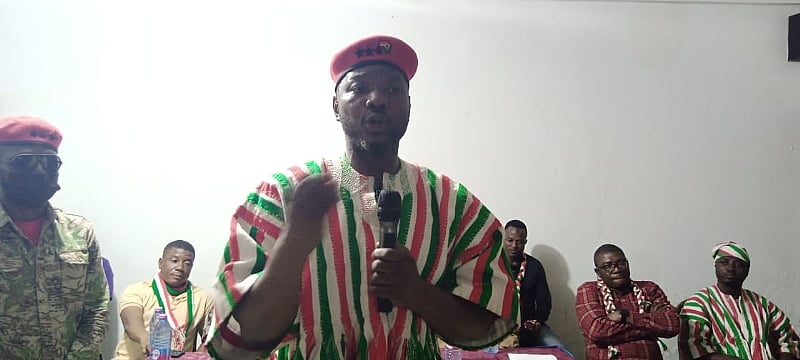Bernard Mornah, the flagbearer of the People’s National Convention (PNC), has expressed strong disappointment over a recent High Court decision that upheld his disqualification from the 2024 presidential race. He made his views known during an appearance on Asempa FM’s ‘Ekosii Sen’ program on October 21, describing the ruling as “a very terrible ruling.” Mornah contends that his disqualification proceedings were flawed and stemmed from a misunderstanding regarding the timeline of communications from the Electoral Commission (EC). His criticisms suggest a lack of thoroughness in the judicial process and have sparked discussions about the implications of this ruling for his political future and that of the PNC.
In his reflections on the ruling, Mornah highlighted inconsistencies in the evidence used by the court to arrive at its decision. He pointed out that the judge based his ruling on a letter from the EC dated September 13, while Mornah’s defense hinged on a subsequent letter dated September 24, which addressed the disqualification notice. According to him, this misalignment in dates raises critical questions about the fairness of the judicial assessment and the basis upon which he was denied the opportunity to rectify his candidacy status. Mornah argued that the ruling not only misinterpreted the timeline but also failed to grant him due process by not providing him a reasonable opportunity to defend himself against the allegations leading to his disqualification.
The implications of the court’s ruling are significant as the 2024 general elections draw near, and Mornah’s disqualification represents a considerable hurdle for the PNC. With the political landscape shifting rapidly and the elections approaching, every candidate’s presence is vital for their respective parties to maintain competitive viability. Mornah’s status as a disqualified candidate could diminish the PNC’s chances of making a meaningful impact in the elections, which raises concerns among party loyalists and supporters about the future of their political aspirations.
Adding to his frustrations, Mornah criticized the decision-making process of the court, emphasizing that it lacked transparency and fairness. He believes that the judge’s reliance on the September 13 letter—rather than the more pertinent details contained in the September 24 communication—was indicative of a broader failure to recognize the nuances of the case. Mornah’s contention that he wasn’t given a proper chance to address the issues raised against him lends credence to his assertion that the ruling is more about procedural shortcomings than any genuine concern over his eligibility.
In response to his disqualification, Bernard Mornah has indicated his intention to escalate the matter to the Supreme Court, highlighting his commitment to seeking justice and rectifying what he perceives as an unfair ruling. This decision to pursue a higher legal avenue reflects his determination not only to clear his name but also to uphold the principles of democratic engagement in Ghanaian politics. By appealing the High Court’s decision, Mornah aims to challenge the legal foundations of the ruling and restore his candidacy as a viable option for voters in the upcoming elections.
Ultimately, Mornah’s ordeal underscores the complexities and challenges faced by political figures within Ghana’s electoral framework. The outcome of his Supreme Court challenge could have far-reaching consequences, not just for his political career and the PNC but also for the legal precedence surrounding candidate disqualifications in the country. As the electoral timeline progresses, the ramifications of the High Court’s ruling and Mornah’s impending appeal will remain closely watched by supporters, opponents, and legal experts alike, marking a crucial moment in Ghana’s political landscape.


